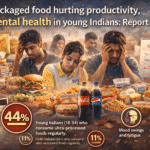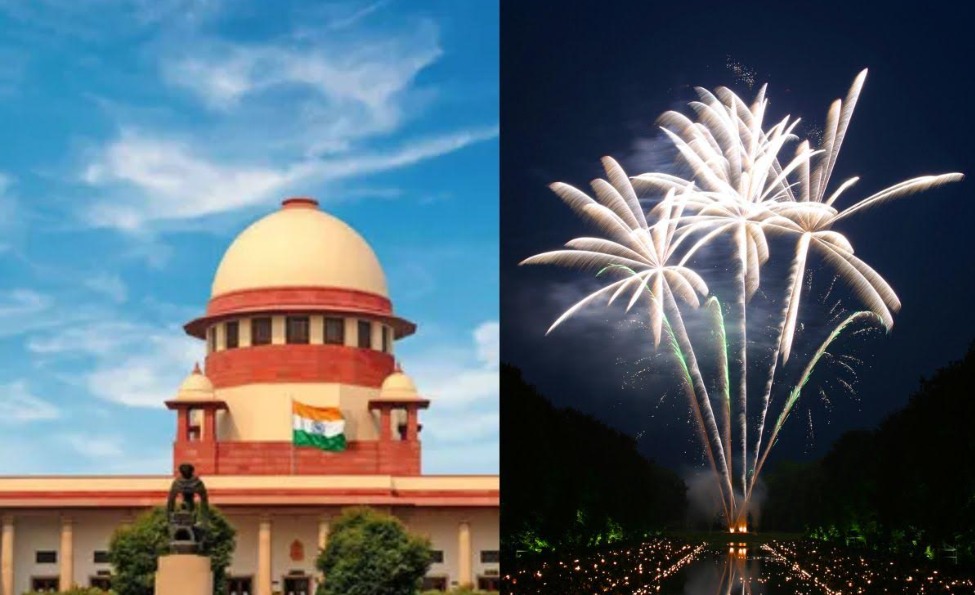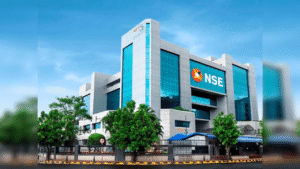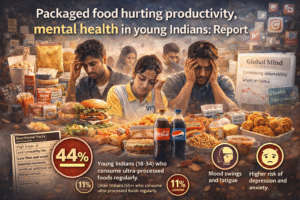On Friday, in India, the Supreme Court raised pertinent questions about why the current firecracker ban is only applicable to Delhi-NCR and why residents in other parts of the country are permitted to experience the same or even more pollution. The court emphasized that the right to a pollution-free environment is a right for all Indians, and not just for the people living in the national capital.
The bench headed by Chief Justice of India (CJI) Bhushan R. Gavai and Justice K. Vinod Chandran was hearing petitions filed by firecracker manufacturers and traders challenging the firecracker sales and manufacture ban in Delhi-NCR for one year. The petitioners stated that the industry sustains thousands of families, the livelihoods of whom they now fear are endangered.
“Delhi Source of Pollution? Its Everywhere”
The Chief Justice of India noted during the hearing that he had visited Amritsar last winter and that people there had noted that the air quality was worse there than in Delhi. The Chief Justice said, “Just because Delhi is a capital, and the Supreme Court is in Delhi, other cities should not breathe clean air?”
The bench observed that if any policy about banning firecrackers is instituted, it occurs throughout India, and if it were only applicable in Delhi-NCR, there is a differentiation that is not accurate when we are aware that pollution and air quality in cities is widespread.
Concerns of the firecracker industry
Among the petitioners were the Association of Firework Traders, Indic Collective, and the Haryana Firework Manufacturers, who were seeking a review of the blanket ban on business of fireworks and the ability to operate under regulation.
Among the petitioners were the Association of Firework Traders, Indic Collective, and the Haryana Firework Manufacturers, who were seeking a review of the blanket ban on business of fireworks and the ability to operate under regulation.
Pollution, Festivals, and Public Suffering
Senior Advocate Aparajita Singh, appearing as amicus curiae, explained that the geographical location of Delhi makes it especially sensitive to pollution during the winter. She emphasized that while restrictions should be imposed, the economically disadvantaged and daily wage workers would suffer the most if a blanket restriction were imposed, for example on construction work, or completely banning firecrackers. Although the Delhi firecrackers ban was an extraordinary measure to deal with excessive pollution and a serious threat to public health, she noted that this should not be a reason for overlooking the plight of workers.
The court endorsed this concern and noted that emergency measures to mitigate pollution often disproportionately affect the socio-economically disadvantaged, who become unemployed with further loss of income, while the affluent traditionally escape negative impacts, albeit temporarily, by leaving the city.
What’s Next
The Supreme Court ordered the state authorities to preserve the status quo and adjourned the matter for further hearing on September 22, just before Dussehra and Diwali.












More Stories
All 7 On Board Air Ambulance Flying To Delhi Die In Crash In Jharkhand
IDFC First Bank discloses Rs 590 crore fraud at Chandigarh branch involving Haryana government accounts
In the new PMO, PM Modi’s first decisions focus on the welfare of women, farmers, and youth